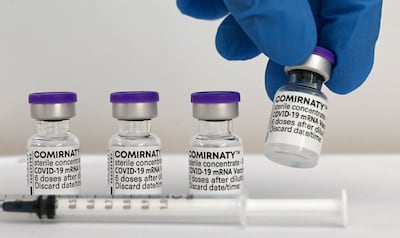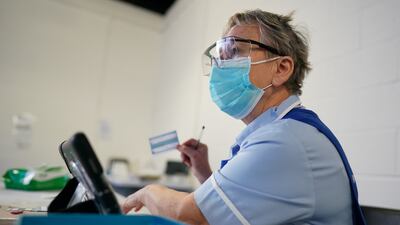Covid-19 cases are continuing to rise across the UK, with the number of cases increasing by 18 per cent in the past week.
In England, one in 25 people now have the virus — up from one in 30 last week, according to the Office for National Statistics, which estimates 2.7 million people had the virus last week .
The figures are worse in Scotland, with one in 17 people having the virus, and in Wales one in 20.
The numbers are being driven by the milder but more infectious Omicron BA.5 variant.
Figures from the Office for National Statistics show that 2.7 million people in private households are estimated to have had Covid-19 last week, up 18 per cent from 2.3 million the previous week.
Meanwhile, the number of people in hospital in England who have tested positive for Covid-19 stood at 11,878 on July 7, up 33 per cent week-on-week.
The majority of people in hospital who test positive for Covid-19 are being primarily treated for something else, rather than the virus.
However, those with Covid-19 symptoms serious enough to require mechanical ventilator beds stood at 232 on July 7, up 10 per cent week-on-week, and the highest number for two months, although much lower than early pandemic peaks.
Some experts argue that as long as death rates remain low and intensive care beds are not filling up at an alarming rate, then allowing the infection to spread enables the pandemic to run its course in a heavily vaccinated population.
However, others are worried about the increasing number of NHS hospital admissions, the impact on health care staff, and the risk of serious illness in the immunosuppressed.

Leading statistician Dr David Spiegelhalter said on Friday that hospital admissions were “rising steeping and they are nearly at the level of previous peaks this year”.
According to the World Health Organisation this week, Europe is at the centre of the resurgence in Covid-19 infections as more people mix at large-scale events and travel.
Some NHS hospitals have brought back mask policies as they deal with a resurgence in cases.
Although the move is not legally enforceable, the trusts say there is a need to protect staff and patients from falling ill. More trusts are expected to follow suit.
Around one in six people aged 75 and over in England (16 per cent) have not received any doses of a Covid-19 vaccine in the past six months, putting them more at risk of severe disease.
It could lead to increasing pressure on hospitals in the coming months.
“We continue to see Covid-19 case rates and hospitalisations rise in all age groups, with the largest increases in hospitalisations and ICU admissions in those aged 75 and older," Dr Mary Ramsay, director of clinical programmes at the UK Health Security Agency, said.
There will probably be a substantial amount of waning immunity in older people who have not taken their spring booster on time.


